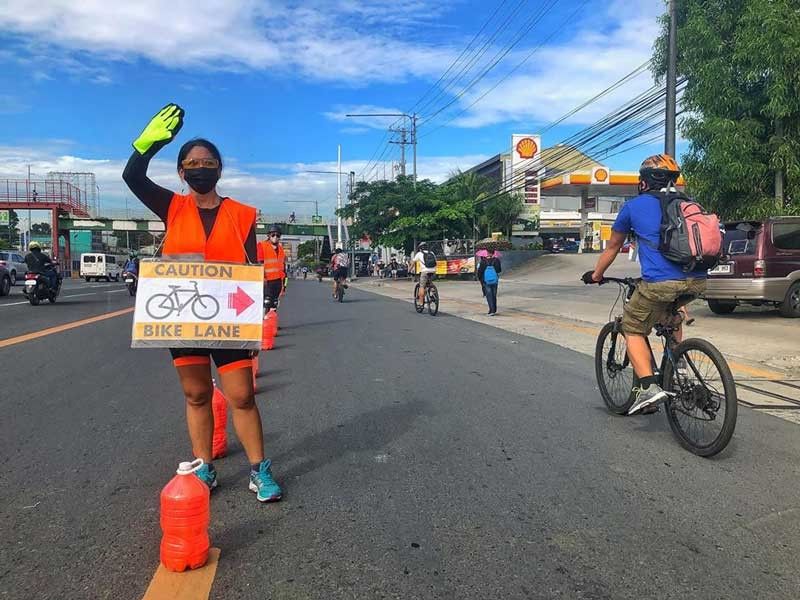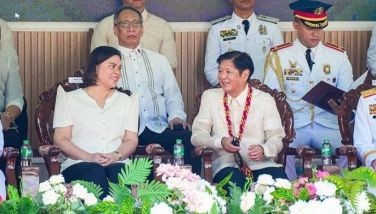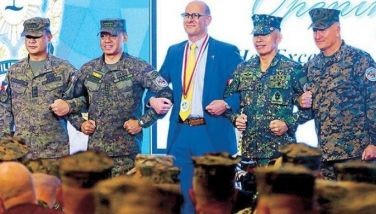Coping in quarantine: Top-down policies leave little space for public input

Part 2 of a two-part feature. Read Part 1 here.
MANILA, Philippines — The government started relaxing guidelines after an 11-week long lockdown in the Philippine capital, hoping to strike a balance between reopening the economy and maintaining health protocols to deter the spread of a still very present and highly transmissible coronavirus.
Sociology professor Mario “Mayong” Aguja says that the government’s approaches to the COVID-19 pandemic has highlighted inequality in Philippine society. But “equally disturbing during this crisis is that science was relegated by political expediency,” he tells Philstar.com, in a paper, “COVID-19 Pandemic from a Sociological Lens,” that he sent in lieu of an interview.
Aguja is the president of the Philippine Sociological Society and teaches at the Department of Sociology of the Mindanao State University-General Santos City.
He holds a doctorate degree in International Cooperation Studies from the Nagoya University, Japan and a master's degree in Sociology at the University of the Philippines in Diliman.
'Fear trumps science'
"Most social policies constructed during the crisis were based on fear and not on science," Aguja says,referring to the strict enforcement of quarantine rules that saw non-standard punishments like physical exercises, public humiliation, beatings, and, in at least one case, a fatal shooting.
READ: LGUs have leeway in enforcing quarantine, but no license for cruel punishments
Aguja is a former lawmaker and among the principal authors of the Juvenile Welfare Act of 2006 and the law that abolished the death penalty. He was the representative of Akbayan party-list from 2002-2007.
"Fear and the naked threat of the power-that-be have become the norm. The solution to the crisis became securitized, rather than socialized—a recipe for disaster in a country where inequality is becoming a historical norm," he adds.
While the public health crisis was initially treated as an epidemiological issue, fear was later injected into the narrative of approach, Aguja says. “We securitized our responses rather than socialized it.”
"Terms such as ‘lockdown,’ ‘checkpoints,’ ‘person under investigation’ and the dominant role of the police and the military, and the centralized command structure of managing the COVID were indicators of the primacy of the security actors and approaches to COVID-19," he points out.
A month into the Luzon-wide lockdown, in April, Dr. Nymia Simbulan of the Philippine Human Rights Information Center said that the "war" narrative is an intentional move, as it encourages dependence on the military and highlights their role in maintaining peace and order.
Duterte’s constant praise for the military and police has been paired with officials repeatedly characterizing Filipinos as "pasaway", or stubborn.
READ: Government banks on 'discipline' as likely shift to GCQ nears
Days before Metro Manila shifted to looser safety protocols under general community quarantine, the government continued to amplify this narrative. Interior Secretary Eduard Año said in a TV interview in late May that they expect Filipinos “are more disciplined now and that they will till follow health protocols.”
Presidential spokesperson Harry Roque parroted this in separate briefing: “The level of confidence is high. Filipinos have proven that they can follow the rules.”
Aguja stresses: "With the use of fear and the dominance of martial approaches, our responses to COVID where neither meaningful nor socially relevant for the majority of our people. Many people suffered from such policies."
READ: Communities can do more in fight vs COVID-19 than staying at home, labor groups say
Little space for public input
As the government moves forward in addressing the pandemic, guidelines are being refined, but Aguja pointed out that the "gift of popular participation" seems have been a casualty.
"Governance during the crisis was centralized contrary to our policy of decentralization. Local government units only became implementers of policies dictated at the national level," he added.
"Other equally important key players during a crisis in Philippine society such as the church, civil society organizations, civic clubs, parent-teacher associations, and village associations, etc were never a significant player in the crafting or implementation of social policies during the crisis," Aguja said.
Fear of the virus has seen residents shunned for living in an area where COVID-19 cases have been reported and has raised concerns that children of parents with COVID-19 could face discrimination and abandonment.
In late May, President Rodrigo Duterte had to order local government units to let returning Overseas Filipino Workers into their towns and cities, saying the power restrict movement rests only in the national government and "that power to declare is not shared by anybody."
The Palace later acknowledged that "additional safety measures at the provincial or LGU level are likewise necessary to ensure that one is truly healthy and devoid of COVID-19" after some returnees later turned out to be have COVID-19.
"I wish national authorities will coordinate with us on the arrival of returnees, with the assurance that those traveling in bus or plane to the provinces are tested and found negative of the disease," Ormoc City Mayor Richard Gomez, whose city has since recorded its first COVID-19 case, said.
Groups in the education sector have also raised a seeming disconnect between government decisions and on the situation on the ground. The Alliance of Concerned Teachers noted a “discord” in government announcements on the opening of classes that it said put teachers in a "restless limbo."
RELATED: Unclear guidelines for school opening put teachers at risk too, group says
The next school year is set to open on August 24. Although no physical or face-to-face classes will be held before the vaccine has been found, alternate modes of learning are being eyed. This includes the use of the internet, TV and radio.
The Education department said on June 19 that gadgets will not be required when classes start although there have been news reports of teachers and students hiking up mountains and climbing trees looking for mobile phone signal to access the internet.
There have been some advances in public participation in policy-making, with the government working on putting up bicycle lanes due to mounting calls from commuters. The shift to bicycles was partly prompted by the lack of public transportation during the shift to a general community quarantine in Metro Manila after months under enhanced community quarantine.
"People have lost focus. Let's remember, we still have COVID-19. They were focused on traveling even though they know, just as the Department of Transportation said, our first priority of course is health and safety, and how to get from point A to point B is our second priority," MMDA general manager Jojo Garcia was quoted as saying in the early days of GCQ.
Aguja says: "Had social scientists in general, sociologists, in particular, had been approached, the social approach should have been taken center stage in the crafting and implementation of public policies."
Drawing the world post-pandemic
The Sociology professor adds that the COVID-19 pandemic shows there may be a need for “another world.”
Citing International Sociology Association professor Geoffrey Pleyers in “A Plea for Global Sociology in Times of the Coronavirus,” Aguja says there are four sets of sets of challenges and debates emerging from the public health crisis.
These are:
- The social dimensions of the pandemic
- COVID-19 governance
- How society reacts
- Will a new world rise out of the crisis?
“He concludes by saying that 'The way humanity will get out of the COVID-19 pandemic will depend on sciences and research to find out a vaccine, but also on the results of the ongoing struggle over the social, political and geopolitical meaning of the pandemic and the world that shall come out of it,'" Aguja added.
FOLLOW: Life after Lockdown compendium
“This is a challenging time,” the sociologist notes, and with this crisis, comes "a test for our resilience, and our sense of social justice."
Half a year has passed since COVID-19 was first reported in Wuhan, China, and this new coronavirus will be with us for some time.
"The more we should encourage everyone to be actively engaged in public discourses, in whatever ways and means available," Aguja says.
"There is no single perspective in understanding this crisis; that is why the challenge to deepen our understanding and to continue with our passion for a sociologically examined life," he says.
"One thing is certain though, our response to the vulnerable sectors of our society during this crisis is our weakest link," Aguja also said.
- Latest
- Trending





























